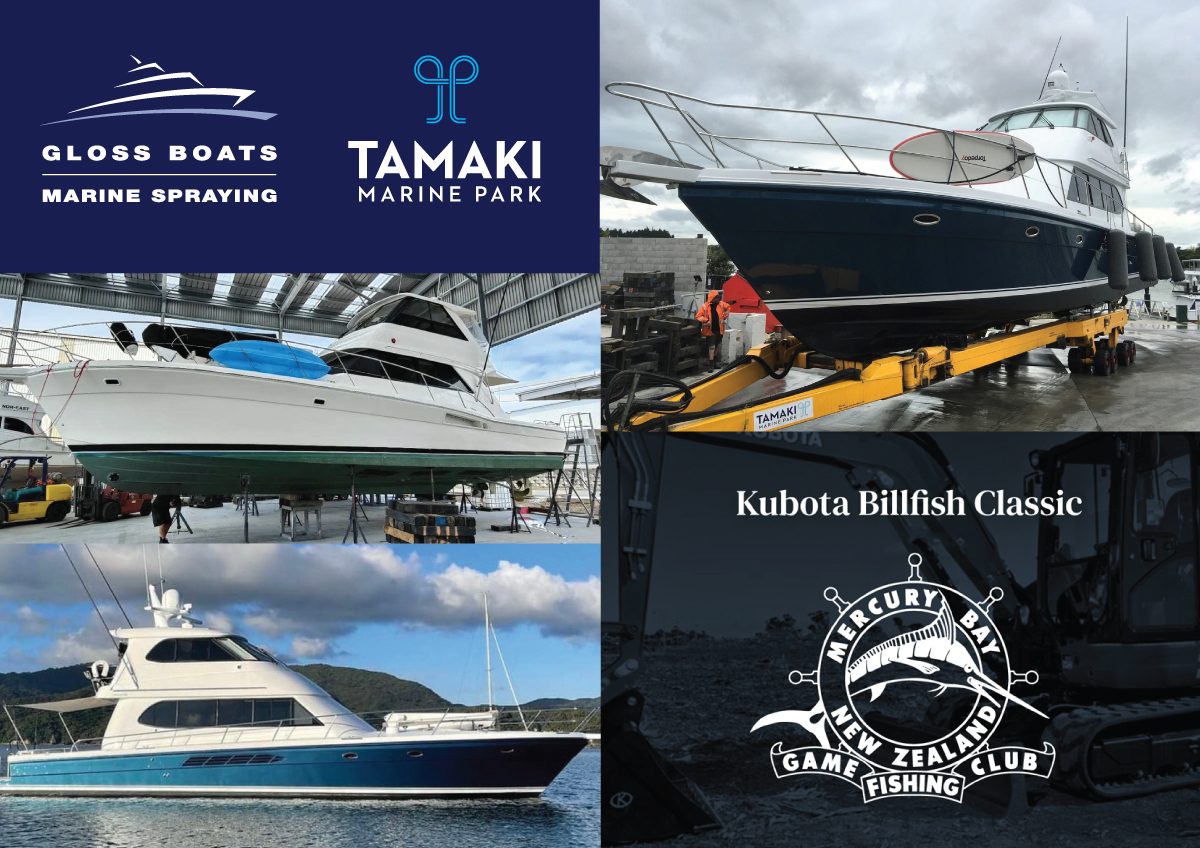Hello to Autumn Adventures!

Welcome to the latest edition of the Tāmaki Marine Park newsletter. It’s been another busy month, and as we mentioned last time, it’s been great to see so many TMP boaties making the most of the prime autumn weather conditions.

Lithium Batteries: Staying Safe on the Water
Lithium batteries (typically LFP – lithium iron phosphate) are becoming an increasingly popular power source for boat owners. When installation involves a retrofit – the process requires careful planning and expertise to ensure safety and optimal performance are achieved. (It’s not just a matter of pulling out lead batteries and popping in new lithium).
LFP batteries operate differently from lead-acid batteries in terms of their power characteristics, such as charging and discharging behaviour, voltage stability, and energy storage capabilities.
Because of this, the devices controlling the batteries, including charge controllers, alternators, and DC converters, may need to be modified or replaced to accommodate the unique requirements of LFP batteries.
Without proper installation by knowledgeable professionals, boat owners risk failing to realise the full potential of LFP batteries in terms of performance, reliability, and longevity.
Be careful with devices stored on-board.
Meanwhile, recent boat fires have been linked to high energy lithium-ion battery powered devices, tools, and toys stored on board boats. These items include power tools such as portable drills, household smart devices, power banks, rechargeable vacuums, and toys such as electric foiling boards and e-bikes. In most cases, these devices use NMC batteries (lithium nickel manganese cobalt oxide).
The actual cause of these fires has been linked to charging practices – such as not using chargers recommended by the original equipment manufacturer or charging for too long. With that in mind, boat owners should follow these simple safety steps:
- Charge a device on a surface that is non-flammable
- Don’t charge lithium-ion batteries near flammable material
- Charge your battery in a cool, dry place
- Never charge a battery that’s been sitting out in the sun
- Don’t overcharge (disconnect after 3 hours of charge time)
- Don’t charge overnight or when your boat is unattended
There’s no doubt that lithium batteries provide efficient power for a wide range of devices, and as a marine power source. But boat owners need to be vigilant about their use and installation. We hope this article helps and if you have any concerns, please talk to a marine electrical professional.
Paint Perfection.
Tamaki Marine Park Boatyard is very much a one-stop-shop for anyone needing work done on their boat. Gloss Boats is one of resident marine service providers and we had a quick word with Reuben about a recent repaint….
Prize Catch: Kubota Billfish Classic

Tāmaki Marine Park has teamed up with our resident service provider Gloss Boats Marine Spraying to co-sponsor a prize at the Kubota Billfish Classic hosted by the Mercury Bay Game Fishing Club. Every billfish tagged goes into the draw to win an antifoul and prop speed to the value of $8,000 or paint work to the same value for trailer boats. With a total prize pool topping $1m (yes, that’s a million) – this is one of the biggest fishing events of its kind anywhere in the world. The heaviest billfish wins an amazing $350,000 – what a catch that would be!
Super Rugby Fun
It was a fun night for the TMP Team at the Super Rugby match in Hamilton between the Chiefs and Fiji Drua. Our rugby-mad Fijian-born crew members were in their element, and although the Drua went down 46-29, the non-stop action meant everyone was smiling!

